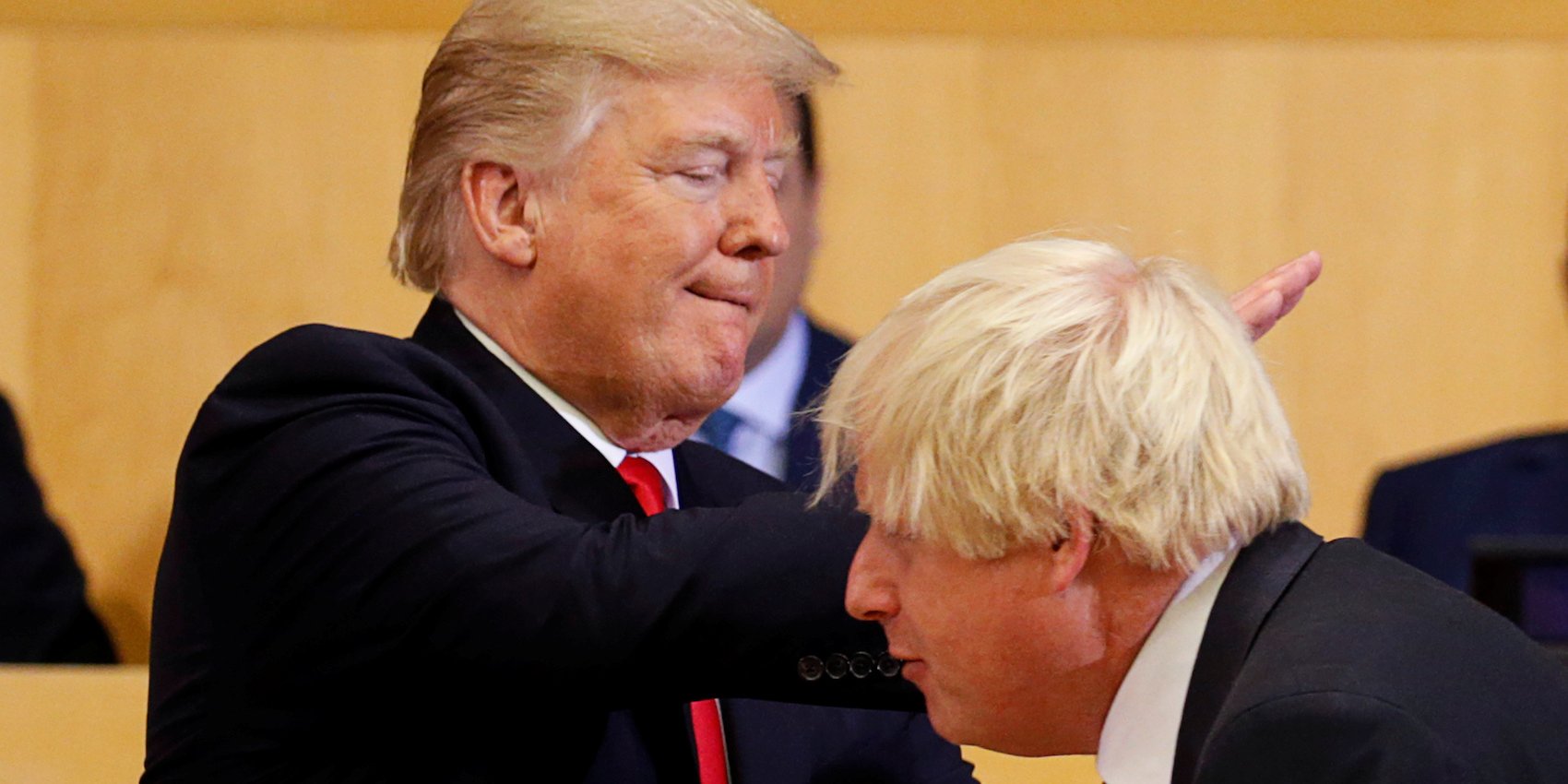- UK Prime Minister Boris Johnson reiterated his aim to stop Iran from acquiring a nuclear weapon, saying that if the current Iran nuclear deal collapses, a new one would be required.
- He told the BBC on Tuesday: “Let’s work together to replace the JCPOA, and get the Trump deal instead.”
- Negotiating and completing the current nuclear deal took more than nine years from start to finish. It was brokered by President Barack Obama’s administration in July 2015.
- The deal has largely been abandoned, however, with President Donald Trump withdrawing the US from it in May 2018, and Iran following suit earlier this month.
- Johnson also appeared to poke fun at Trump, saying that he “is a great deal-maker, by his own account.”
- Visit Business Insider’s homepage for more stories.
UK Prime Minister Boris Johnson has called for a “Trump deal” to replace the largely-abandoned Iran nuclear deal, which both the US and Iran have abandoned amid high tensions.
In a Tuesday interview with the BBC, Johnson said: “Let’s work together to replace the JCPOA and get the Trump deal instead,” referring to the Joint Comprehensive Plan of Action that was signed and completed in July 2015.
The JCPOA was designed to stop Iran from producing its own nuclear weapons, and set up a framework limiting the amount and degree to which Iran was allowed to enrich uranium.
Creating and signing the JCPOA was the culmination of dozens of top-level talks between Iran and the US, UK, China, France, Russia, and Germany – also known as the P5+1 countries – to curb Iran’s nuclear ambitions.
Discussions of a deal started as early as June 2006, according to the Arms Control Association's timeline.
It was eventually completed in July 2015, during President Barack Obama's administration.

The deal has been largely abandoned by the US and Iran under President Donald Trump's administration, with Trump officially withdrawing from it in May 2018 and Iran following suit earlier this month after the Trump-directed assassination of revered military commander Qassem Soleimani.
Trump's withdrawal and subsequent imposition of punitive sanctions has been widely viewed as the catalyst of a series of escalating tensions between the US and Iran. The Islamic republic started pulling away from the deal in mid-2019 by breaching the JCPOA limit on nuclear fuel stockpiles.
Johnson told the BBC on Tuesday: "Somehow or other, we've got to stop the Iranians acquiring a nuclear weapon," adding that if the current deal doesn't work then the world would need a new one.
He also appeared to poke fun at Trump's boastfulness by saying: "President Trump is a great deal-maker, by his own account, and many others."
Creating a "Trump deal" would likely take months of negotiations, and given Iran's refusal to talk to Trump, would be immensely difficult.

Johnson's remarks came after Britain, France, and Germany issued a joint statement Monday supporting the JCPOA following Trump's assertions that US allies should drop the "foolish" deal, reiterating their "regret and concern" that Trump withdrew from it. His Tuesday comments appear to run counter to this statement.
Referring to the ongoing US-Iran tensions, which have seen Iran strike two Iraqi missile bases that housed US troops, Johnson said: "I don't want a military conflict between us, the United States and Iran ... Let's dial this down."
UK-Iran tensions are also at a high point after the UK ambassador in Iran said he was briefly detained after attending a vigil for victims of the Ukraine International Airlines plane crash in the country.
More than 100 Iranian lawmakers have since expressed support to downgrade the country's relationship from an ambassador to consular level, the local Tasnim news agency reported Tuesday.
The passenger plane, which had been flying from Tehran to Kyiv, was accidentally shot down by Iranian troops, the regime said.
The crash killed all 176 people on board. The regime's admission of guilt sparked a wave of demonstrations in the country, with protesters claiming they were met with bullets and tear gas.
- Read more:
- Boris Johnson mocked Trump's boastfulness as he told him to 'dial down' his conflict with Iran
- A Canadian CEO called Trump a 'narcissist in Washington' and blamed him for heightened US-Iran tensions that led to the Ukraine Airlines plane crash that killed 63 Canadians
- Most Americans think Trump's escalation of tensions with Iran was driven by his upcoming impeachment trial
- Trump says he stands with Iranians amid anti-government protests. But he's barred them from US travel, threatened to bomb their cultural sites, and mocked the way they dress.

